Calls grow to stop US deportations to Haiti amid political crisis
Rights groups urge Joe Biden to freeze deportations of Haitian migrants after assassination of President Jovenel Moise.
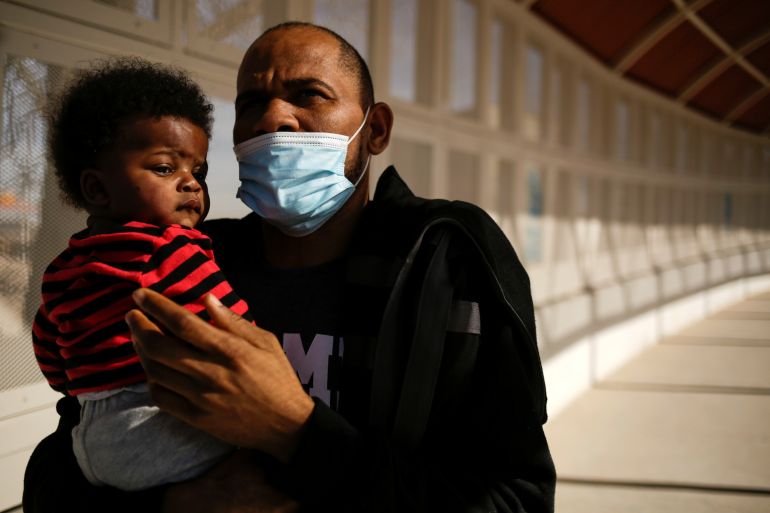
Washington, DC – A plane carrying 21 Haitian migrants expelled from the United States landed in Port-au-Prince on July 6.
It was the 35th such deportation flight since US President Joe Biden took office, sending an estimated 2,000 Haitian asylum seekers, including families, pregnant women and children, back to the rampant gang violence and systemic poverty from which they fled.
Keep reading
list of 3 itemsHaitian president’s killing fuels escalating fears, uncertainty
Haiti arrests suspected mastermind in President Moise’s killing
Less than 24 hours later, armed gunmen stormed President Jovenel Moise’s home in the Haitian capital, killing him and injuring his wife, and sending shockwaves across the Caribbean nation and around the world.
Back in the US, the deadly attack raised fresh concerns from Haitian community advocates who long before Moise’s killing had demanded an end to US deportations of migrants and asylum seekers to Haiti.
“We are calling on the Biden administration to put a moratorium on all deportations and to release Haitian asylum seekers and refugees held in detention in light of this crisis,” said Marleine Bastien, executive director of the Family Action Network, an advocacy and social service agency that assists Haitians in South Florida.
“We have been asking for months now,” Bastien told Al Jazeera.
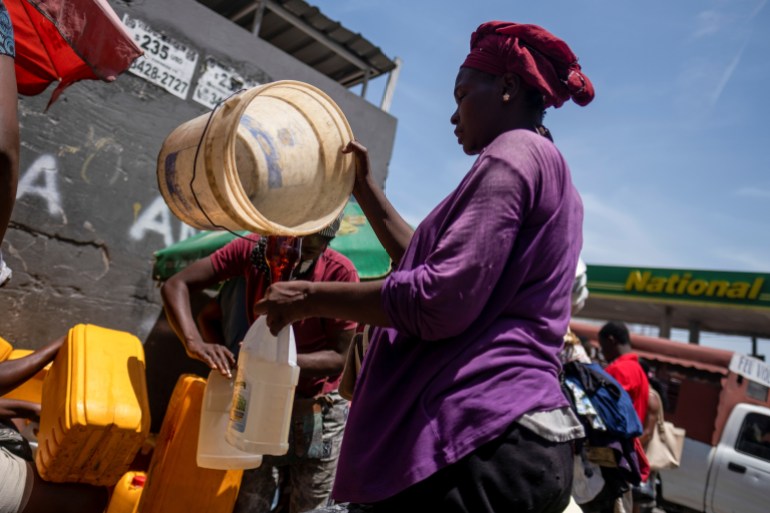
‘Simply unacceptable’
Immigration advocates say no US deportation flights have landed in Haiti since the country was thrust into further turmoil by Moise’s assassination last week, as the Haitian constitution is unclear over who should take over and at least three leaders hold competing leadership claims.
But they are increasingly concerned by the deportation of Haitian asylum seekers arriving at the US-Mexico border as well as their continued detention in the US under the public health rule known as Title 42.
“It is simply unacceptable for them to be held in cages instead of being released to be united with their families and community members,” said Guerline Jozef from Haitian Bridge Alliance, a US-based coalition of Haitian non-profit organisations.
“We are asking the Biden administration to stop all deportations and expulsions under Title 42 and to release all asylum seekers – all [detained] Haitian nationals who are seeking asylum in the United States,” Jozef told Al Jazeera.
Most migrants arriving at the US-Mexico border are being deported under Title 42, which was invoked last year by former President Donald Trump on the basis that it was needed to prevent the spread of COVID-19.
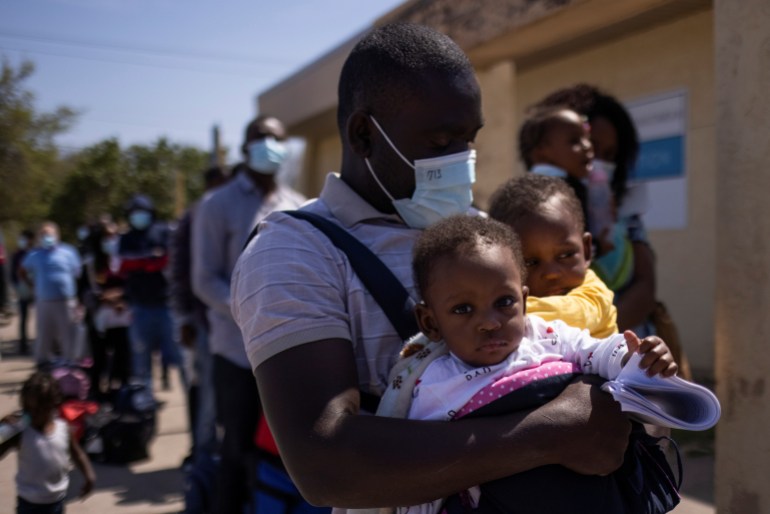
So far, Biden has kept the measure in place, citing the pandemic, though he exempted children travelling alone from immediate removals. But rights groups and progressives have blasted the policy as a guise to block asylum into the country.
While Central American migrants – who make up the bulk of the arrivals – are sent back to Mexico, US authorities send Haitians directly back to Haiti, a nation that has been crippled by political instability, poverty, disease, gang violence and the lasting effects of a major earthquake that struck the small island nation more than a decade ago. They are held in immigration detention pending deportation.
A day after Moise’s assassination, a group of 134 pro-immigrant organisations penned a joint letter to the Biden administration urging an immediate halt to the detention and expulsion of Haitian migrants.
“Armed gangs control many streets and have been kidnapping civilians, including school children and church pastors in the middle of their services. Now, experts warn that the political vacuum left by President Moise’s assassination could exacerbate the current cycle of violence in Haiti,” the letter reads.
“No Haitian should be subjected to expedited removal or reinstatement of removal given the lives at stake and the Biden administration’s own assessment of the dangerous conditions in Haiti.”
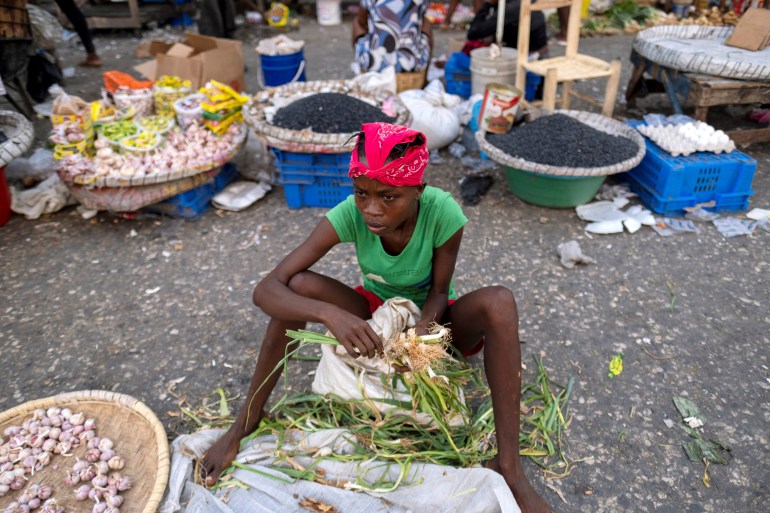
Migration detention
The US Department of Homeland Security (DHS), which administers the US immigration system, does not have a breakdown of the nationalities of people in immigration detention – and Haitian community advocates did not have an estimate for the number of Haitian nationals currently detained.
According to TRAC Immigration, a research group affiliated with Syracuse University, more than 27,000 migrants of all nationalities were being held in Immigration and Customs Enforcement facilities as of July 8, awaiting deportation.
Earlier this year, the Biden administration acknowledged the dangers Haitians face should they be returned to their home country. On May 22, the US cited instability and violence in Haiti as it announced a new, 18-month Temporary Protected Status (TPS) for Haitians already in the US, which shields them from deportations and allows them to work legally in the country.
“Haiti is currently experiencing serious security concerns, social unrest, an increase in human rights abuses, crippling poverty, and lack of basic resources, which are exacerbated by the COVID-19 pandemic,” Homeland Security Secretary Alejandro Mayorkas said at that time.
“After careful consideration, we determined that we must do what we can to support Haitian nationals in the United States until conditions in Haiti improve so they may safely return home.”
But the designation has not yet been published in the Federal Register, which is needed to formalise the announcement and allow Haitians to start applying. The TPS designation also does not protect those who arrived in the US after May 21, drawing further criticism from immigration experts who say the latest events in Haiti require a more proactive response.
“Given the assassination and an already extremely dire situation in Haiti even before the assassination, which warranted TPS designation, it is extremely unsafe to deport people to Haiti,” said Steven Forester, the immigration policy coordinator at the US-based Institute for Justice and Democracy in Haiti.
“Our view is that nobody should be deported to Haiti – period – whether or not they technically meet the requirements for TPS, once they publish the notice – even if they arrive after May 21,” Forester told Al Jazeera.
In an emailed statement, a spokesperson for Immigration and Customs Enforcement (ICE), a law enforcement agency administered by DHS, said the 21 Haitians on the July 6 deportation flight had been convicted of a crime, and were not eligible for TPS protection.
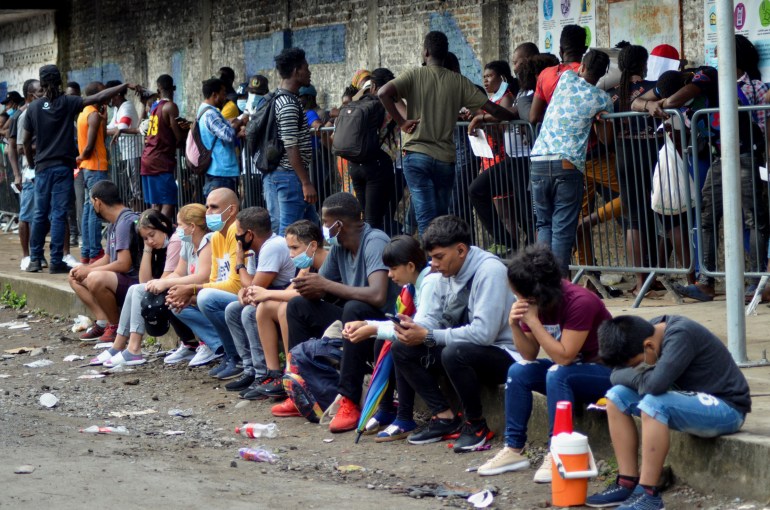
Thousands in Mexico
Meanwhile, the Bridge Alliance estimates that between 5,000 and 10,000 Haitians currently live in violence-plagued Mexican border towns where Black migrants in particular are vulnerable to exploitation and attacks.
Some have been waiting up to four years for the opportunity to seek asylum in the US, as many were prevented from crossing under Trump, whose administration severely limited access to asylum starting in 2017.
Mayorkas on Tuesday said the US has not yet seen a surge of Haitian asylum seekers, but warned migrants from Haiti and neighbouring Caribbean island Cuba – currently gripped by protests and shortages of basic goods – from making the journey to the US by sea.
“Let me be clear: If you take to the sea, you will not come to the United States,” he said during a news briefing. “Any migrant intercepted at sea, regardless of their nationality, will not be permitted to enter the United States,” he said. “This risk is not worth taking.”
Nicole Phillips, legal director at the Haitian Bridge Alliance, said concerns are now growing that even if deportation flights of Haitians are halted, those arriving in the US will continue to be detained, for potentially prolonged periods of time.
Those who have been paroled are often fitted with ankle bracelets that have caused health problems, said Phillips, adding that most Haitians have relatives in the US with whom they could stay.
“Almost every Haitian I’ve spoken to has family [in the US] that can receive them if they are released from prison. And there are networks of shelters where they can go,” she told Al Jazeera. “They do not need to be detained.”